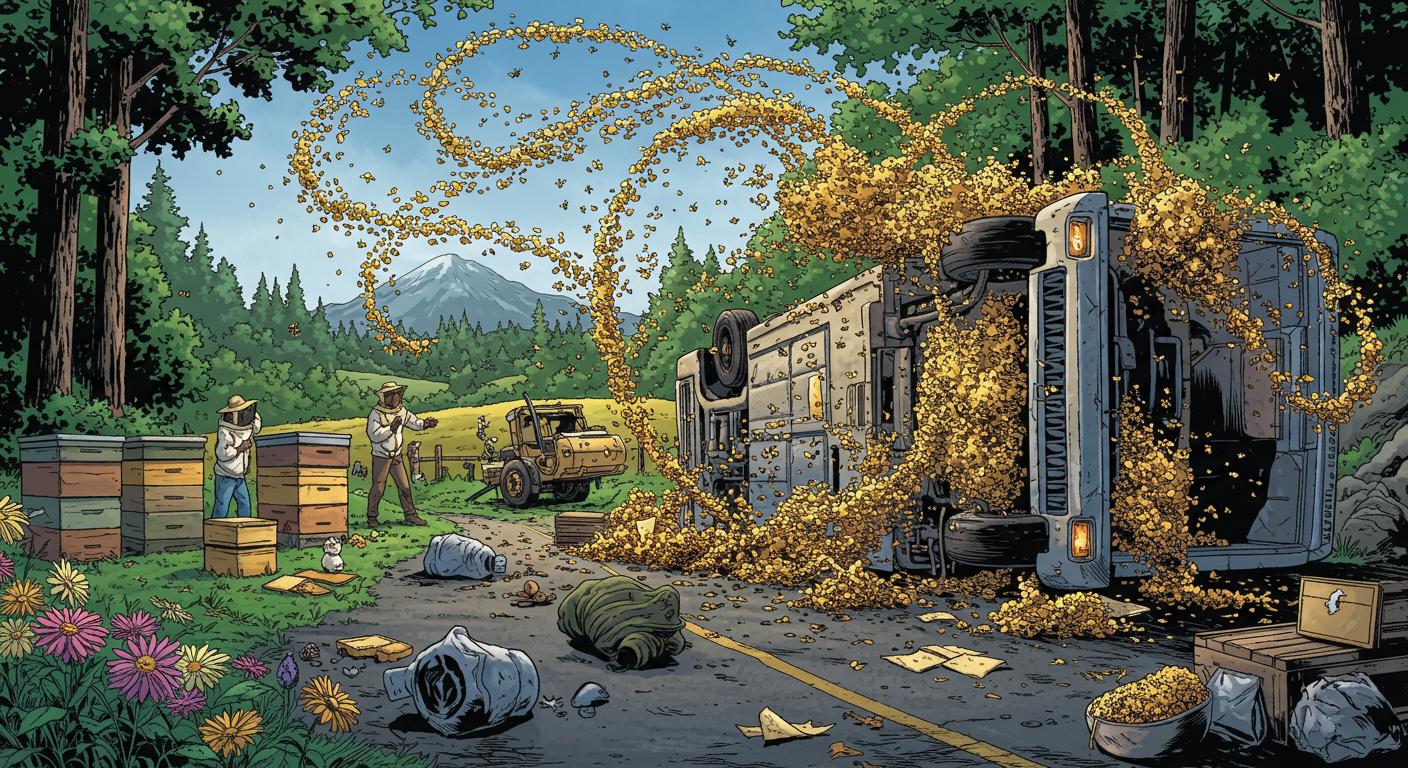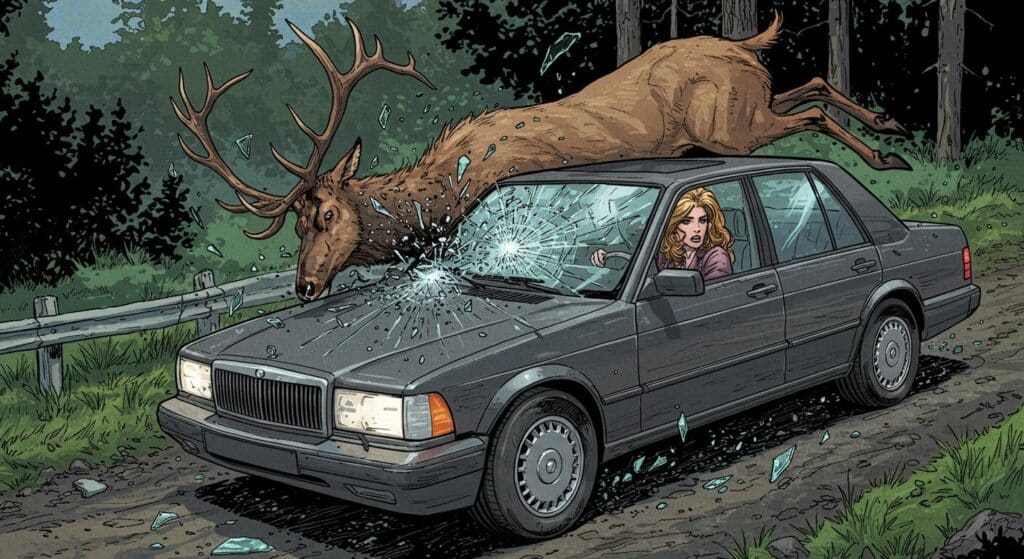Early Friday morning near Lynden, Washington, the mundane became markedly more interesting when about 250 million honeybees found themselves unexpectedly footloose—and winged—after a truck hauling 70,000 pounds of hives overturned. As reported by the Associated Press, the incident occurred after the driver failed to successfully navigate a tight turn just south of the Canadian border, sending the trailer, its hives, and their buzzing occupants tumbling into a roadside ditch.
Not Your Average Traffic Jam
In a detail highlighted by the Associated Press, the collision happened around 4 a.m., leaving the driver unharmed but creating a situation that could only be described as “swarming with activity.” Deputies, public works employees, and, somewhat heroically, local bee experts mobilized to the site in an effort to regain control of millions of suddenly liberated insects. County emergency management spokesperson Amy Cloud explained in an email that the plan was to allow the bees to find their way back to the hives and, with any luck, the queen, over the coming days. Whether this involves a little coaxing or possibly motivational speaking aimed at bees was not specified.
On the scene, over two dozen area beekeepers responded to calls for help, forming an impromptu task force to aid with recapturing the insects and trying to restore order to the pollinator chaos. In a post from the Whatcom County Sheriff’s Office, appreciation was extended to these volunteers, crediting their coordinated effort with ensuring that the recovery was “as successful as possible.”
Lessons in Pollinator Logistics
As AP further documents, the public was asked to keep well clear of the area—no doubt appreciating the opportunity to avoid being on the receiving end of hundreds of millions of bee’s irritation. The outlet also notes that deputies were observed ducking into their patrol cars as clouds of agitated honeybees made the odds of avoiding stings more theoretical than practical.
The inherent risk here isn’t just human discomfort. Honeybees play a critical role in agriculture, pollinating more than 100 different crops—nuts, berries, fruits, vegetables—powering a large portion of our food system, as the Associated Press outlines. Given the ongoing decline in their populations, with experts blaming insecticides, parasitic mites, climate change, and poor nutrition sources, saving as many bees as possible after such incidents takes on added urgency.
Beekeeping on this scale is a migratory business, AP relates, with millions of bees frequently transported to new locations to prevent resource depletion. As described in the AP’s summary of Seattle Times reporting, Alan Woods, the state beekeeping association president, has advocated developing a standardized “emergency bee response”—a sign, perhaps, that bee truck accidents are surprisingly not rare. The article recalls that in 2015, 14 million bees made their own traffic headlines after escaping a crashed truck north of Seattle, stinging several would-be rescuers. Apparently, bee mayhem on Washington highways is episodic enough to merit its own procedural guidebook.
The Scene and the Sting
It’s hard not to picture the scenario as part minor disaster, part community festival—if your idea of a festival includes thousands of wooden boxes, a cacophony of buzzing, and deputies nervously peeking through their squad car windows. There’s a certain charm to the beekeepers’ impromptu gathering, a flash mob dedicated to pollinator welfare, working against the clock (and against bee tempers) to minimize losses.
Perhaps the bigger question lingers, tucked between orange cones and hurriedly donned bee suits: should we be surprised that even the careful, everyday business of moving hives can so easily veer into absurdity? One can’t help but wonder if Washington, of all places, should invest in roadside signs reading, “Caution: Bee Recovery in Progress.” As things stand, maybe the best takeaway is that disruptions can sometimes bring out both the remarkable and the resourceful in a community—and, when it comes to honeybees, occasionally prompt a buzzing interruption to the best-laid plans.







